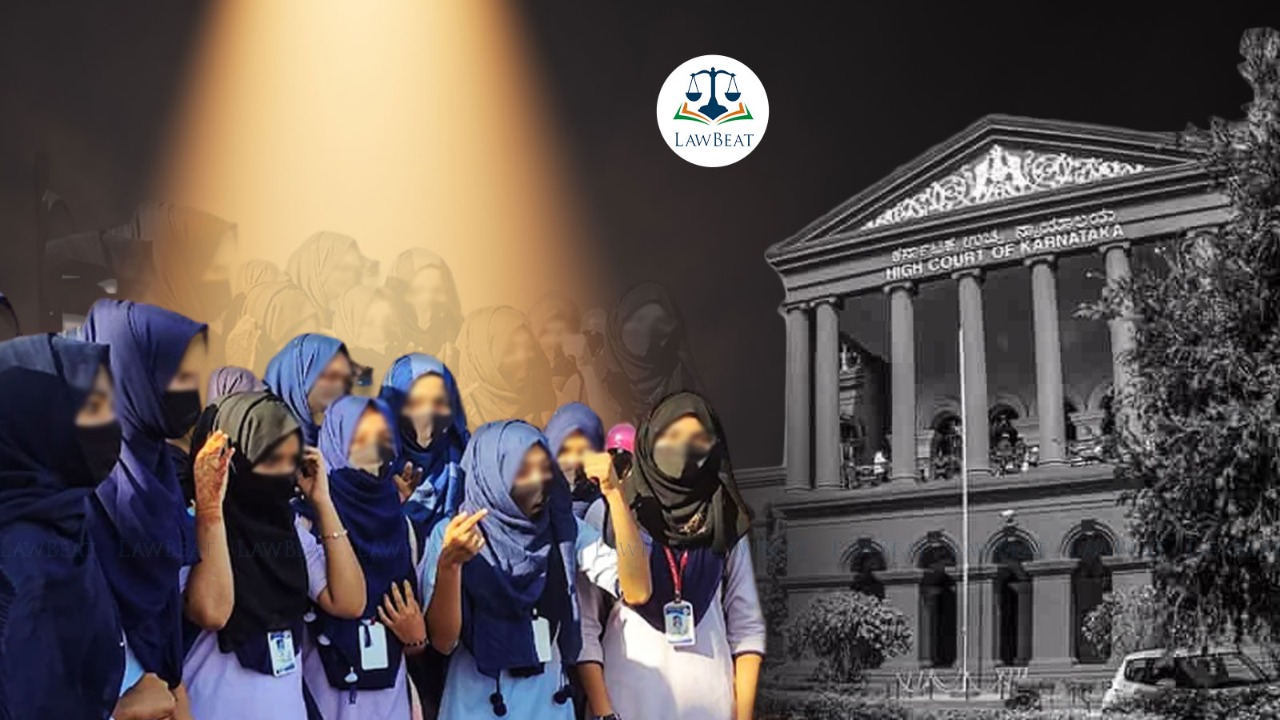“This is not a PIL, we will hear intervenors only if necessary”: Karnataka High Court clarifies in Hijab case

A special Bench of Karnataka High Court headed by CJ Ritu Raj Awasthi and comprising Justices Krishna Dixit and JM Khazi today made it clear that they will not be hearing any intervenors in the case unless necessary as this is not a public interest litigation.
The bench said, “This is not a PIL. These are the Writs filed by individual persons, they are being heard. Where is the question of considering these interventions? They will waste the time of the court.”
The court however made it clear that they will call upon the intervenors to assist the court if need be.
The bench also clarified today that they have not disposed off any interim application and that they have passed an order for an interim arrangement. The court was hearing plea(s) by girl students challenging the alleged ban of wearing Hijab in government pre-university colleges in Udupi district.
When the hearing for the matter commenced, Prof. Ravivarma Kumar, Sr. Adv, resumed his arguments. He submitted that a prescribed uniform has not been contemplated for Pre University students under the Karnataka Education Act, 1983 or the rules that were framed under it. He further submitted that according to the rules, the parents have to be given a year’s notice if there is a change in the uniform and that the same applies to Hijab. Kumar further submitted that the College Development Council does not have to authority to impose restrictions on uniforms. He said “Their purpose is to utilise the grants, maintaining academic standards and development of infrastructure. This is not constituted to take care of students welfare.” He referred to the 2014 circular which provided for the formation of CDC. The court at this point questioned “Can the uniforms not be prescribed to maintain standards? Why cant it be read that it is for maintaining uniformity and discipline?” Kumar submitted that the CDC’s scope is limited and it cannot be expanded to include this.
Kumar said “Here is an MLA who is endowed with administrative power, this takes away the basic quality of Indian democracy. Apart from the fact that doctrine of separation of powers ensures no mixing up of two functions of administrative and legislatorial.” Kumar further argued that an MLA or MP cannot be entrusted with any power either under the Statute or under the constitution. He remarked “Here the MLAs have been given financial powers. Take judicial note of the fact that MLA will be representing a political party. Can you entrust students to a political party or ideology ?” It was further argued that Constitution of a committee of this nature is a death blow to Indian democracy.
Kumar then made submission on how this would amount to religious discrimination, he said “Are bangles not religious symbols? Why only pick up these poor muslim girls for discrimination?” He further submitted that “The petitioners are subjected to this only because of their religion. A dupatta is not bad, a bangle wearer is not sent out, a bindi wearer is not sent out? Why only these girls? Cross is also a religious symbol.” Kumar argued that no other religious symbol is considered in the GO and only Hijab is considered. He questioned if the discrimination is based purely on their religion. Kumar further submitted that “ the goal of education is to promote plurality. The classroom should be a reflection of the diversity in the society.”
Kumar said “My respectful submission is if people wearing turban can be in the army, why not a person sporting a religious symbol be not permitted to attend classes?”
The court heard his submissions and asked Yusuf Mucchala, Sr.Adv, to make his submissions. Mucchala submitted that the GO dated 5th February reeks of manifest arbitrariness and that the petitioners in this case have been wearing Hijab for quite sometime, however owing to the order, they have been denied the right to do so. Mucchala further argued that “If a girl comes bare footed, can she not come to classes? When we say uniform, we cant so strictly confine. We need to understand what was the practice of the school. A notice should have been given. They should be informed”
Muchhala further submitted that there is no ground for the State to exercise reasonable restriction in Article 25 and that if at all it needs to be exercised the State has to do so under Article 26. Mucchala further argued on doctrine of proportionality and said “This particular impugned action is not advancing the purpose of the Education Act.Harmony is the real purpose of the act. The measure will go against the purpose of harmony #HijabBan if they want to have uniformity, why not consult?”
On Mucchala finishing his arguments, the court adjourned the matter to tomorrow for further hearing.
Case title: X Vs State of Karnataka
